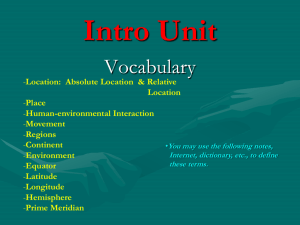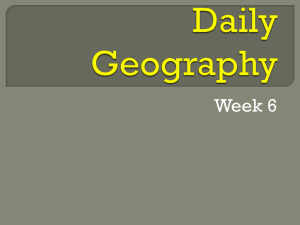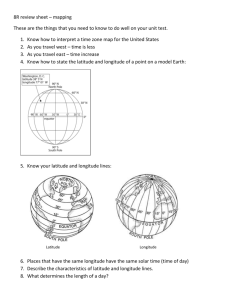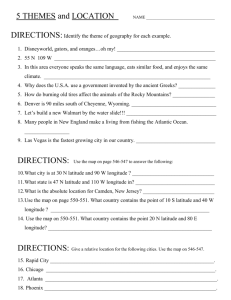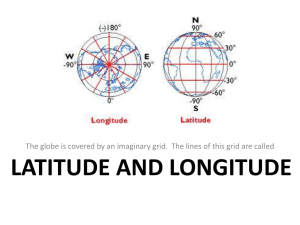Mapping Our World: Globes
advertisement
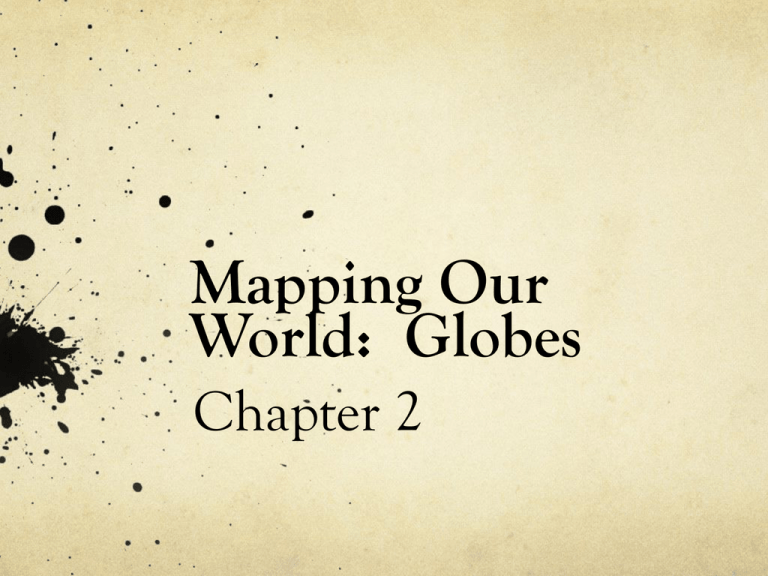
Mapping Our World: Globes Chapter 2 Your Experience with Maps Describe the various ways in which you have used maps. Why is it important to use a map? Discovery Lab Have you ever been asked for directions? If so, you know that it’s important to include as much detail as possible so that the person asking for directions will not get lost. You also may have realized that it helps to draw a detailed map of the destination in question. Your Task 1. Give verbal directions from your school to your home to a classmate who does not know where you live. Include as much detail as possible in your description. 2. Use a sheet of paper (graph if you have it) and colored pencils to draw a map from your school to your home. Include landmarks and other details. Share with your classmate. 3. Have your classmate also give you a description of where their home is located in relation to your school also drawing a map. The big question??? Which did you find more helpful, the verbal directions or the map? Share with class What kind of information did you include in your map? How could you have improved your map? What details would you have added? Cartography The science of mapmaking Latitude • Parallel to equator (0° latitude) • Runs like a ladder (parallel) • Referred to as North and South degrees latitude Longitude • • • • • AKA meridians. East and West Degrees Longitude. The prime meridian represents 0° longitude. Points west of the prime meridian are numbered from 0° to 180° west longitude. The same goes for east longitude. Lines are semicircles and extend vertically from pole to pole. How do we write latitude and longitude locations? Both latitude and longitude are needed to precisely locate positions on Earth. When writing coordinates, latitude comes. TIME ZONES Earth is divided into 24 time zones. Why? Because it takes Earth About 24 hours to rotate on its axis.
